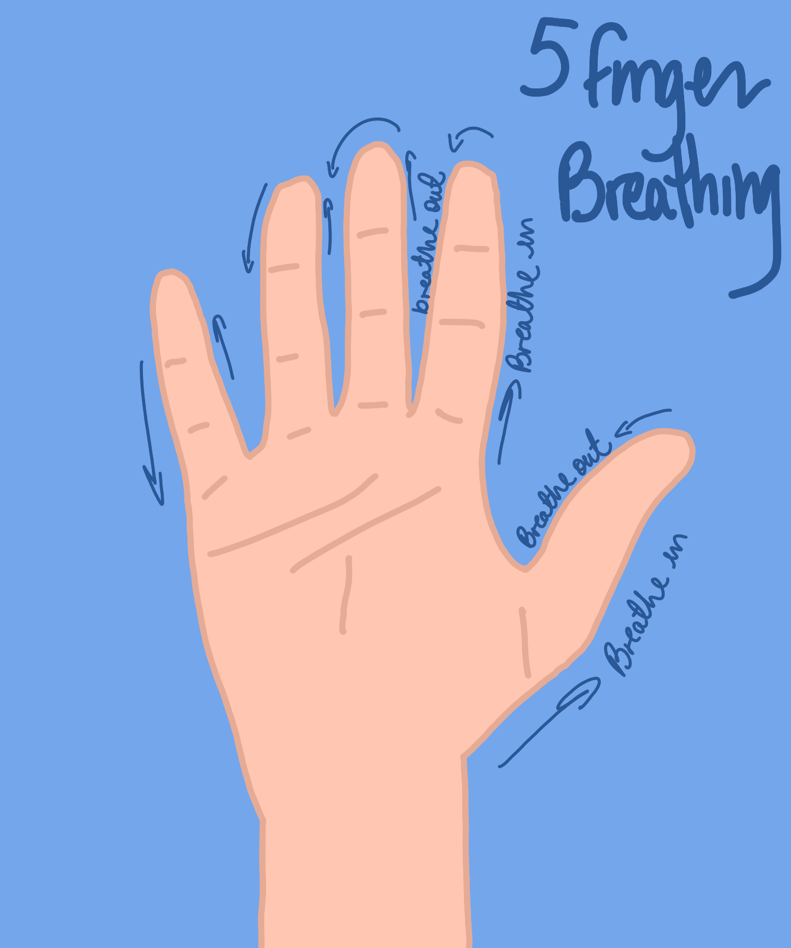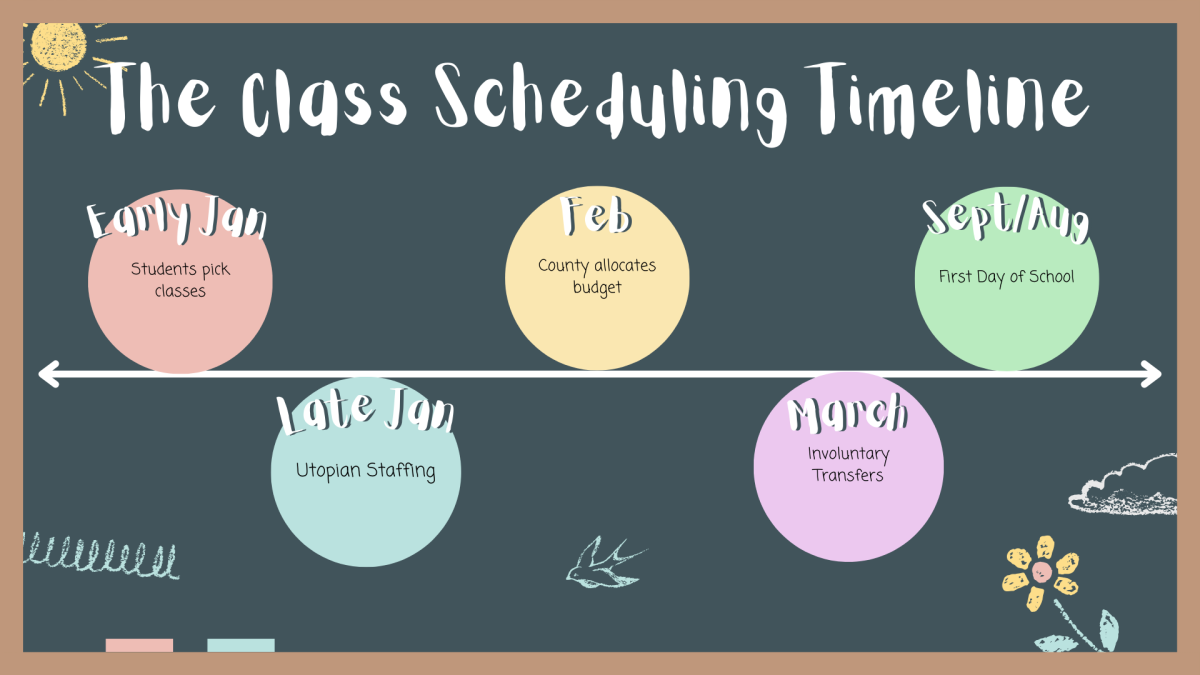For many students across the country, high school is both a beehive of activity and a pressure cooker, and adding standardized testing on top of mountains of homework and extracurriculars only increases the workload. Because many students don’t understand the differences between the SAT and ACT, they find it difficult to decide which one to take. To add to the icing on the cake, on March 5, the College Board announced they would be redesigning the SAT in 2016.
According to collegeboard.org, the redesigned SAT will have evidence-based reading and writing; include source documents that originate from a wide range of academic disciplines, more widely used vocabulary, a passage from the Founding Document or the Great Global Conversation, and texts that involve analyzing real world concepts. The math section will draw from fewer topics and better prepare students for the real world, and calculators will only be allowed on certain portions. The total score will be reported on the 1600 scale, with a separate score for the essay. The essay will be optional and is intended to measure students’ ability to analyze evidence and explain how an author builds a persuasive argument.
Additionally, points will no longer be deducted for guessing. Previously, the SAT took off points when a wrong answer was selected. In contrast, the ACT has no penalty for guessing because the total score is based on the number of correct answers.
WJ currently offers a College Test Prep class to assist students in preparation for attending college and the SAT and ACT.
This year, the College Prep course is taught by Rachel Gold and Joe Perone.
In the College Prep class, students alternate between studying English and math.
“[We have] two weeks with Ms. Gold where we learn [vocabulary] and take practice [tests], and two weeks with Mr. Perone, where we review math concepts and also take practice [tests],” said junior Daniella Otarola.
Otarola took the SAT this March, and decided to take the SAT over the ACT by taking a few mock tests and comparing her scores and the formats to find the ones she liked the most.
According to princetonreview.com, the ACT, which is traditionally more popular in Midwestern and Southern schools, incorporates more advanced math concepts that include basic arithmetic, algebra I and II, geometry and trigonometry. The website is also of the opinion that the SAT, which is generally preferred in East and West Coast schools, places more emphasis on vocabulary, and that ACT questions are usually more straightforward and easier to understand at first glance than those on the SAT.
“The biggest difference [between the ACT and SAT] is the length of time, the ACT is a longer test,” said school counselor Erika Murray. “The ACT [also] has a separate science section.”
Math teacher Erin O’Connell said that with the SAT changing, the SAT may look more like the ACT. However, the number of sections on the new SAT remains unknown, and we may not know exactly how similar or dissimilar these two tests are. O’Connell also added that presently, the ACT is structured in three big chunks, whereas the current SAT has shorter sections that go back and forth between subjects.
“I tell students that the SAT is more of a reasoning test, and the ACT, at least as far as the math goes, [has] problems [that] look a little bit more like the types of questions that they’d encounter in a high school math class,” she said. “[Also,] the SAT goes up through basic Algebra 2 and the ACT has a little trigonometry.”
According to Businessweek.com, students who take the ACT receive a separate score on a scale from 1-36 for each of the test’s five sections, a combined English/Writing score, and finally a composite score, made up of the average of all the sections.
The ACT Writing Test is 30 minutes long and optional on test day, although many schools require it. It listed separately from composite score. In contrast, the SAT essay is 25 minutes long is required and factored into the final writing score.
Additionally, college admissions officers tend to consider how a student performs on each individual section of the SAT, while they focus more on the total score earned on the ACT.
Otarola feels the changes to the SAT will be beneficial for students, because the vocabulary on the new test is meant to be vocabulary that is more common and useful in everyday life.
“It’s a smart move to use modern words… it seems like [it will be] a much easier test,” said sophomore Zachary Steinberg.
Even so, the new test has not yet been released, and will not be implemented until 2016. Murray advised students on how to prepare for high stakes test.
“Make sure that you prepare for the test, don’t walk into it blindly. There are [even] prep books available to borrow from the Career Center,” said Murray.
Otarola started taking practice tests during the second semester of her sophomore year, and preparing during the summer before her junior year. She advises that students who have yet to take the SAT or ACT should learn vocabulary and how to pace themselves when taking the test.
“[To prepare for the SAT] I took a class over the summer, had an individual tutor on Sundays, took a couple practice tests, and… am currently in College Prep at school,” said Otarola.“[It’s] good to practice and prepare yourself, because practice does help a lot.”
Senior Isabel Owens took the SAT in the spring of her junior year and fall of her senior year. She chose the SAT over the ACT because her sister had previously taken it, and she had heard more about it in school and from friends.
Owens began preparing about one or two months before taking each test.
“I took a prep course [with] Capital Educators, and studied on my own,” said Owens. “In the prep course we had a practice test every other week on Saturday, and the class was every Sunday. We went over each section of the test , reading, math, and writing, and learned how to evaluate the questions well.”
Owens would advise students who haven’t taken the ACT or SAT yet to take a prep course and study for months in advance with review books.
English teacher Joanne Reynolds also offered her advice on preparing for both or either test(s).
“My advice for preparing is [to] take many practice tests so you can get used to doing well under those timed situations,” said Reynolds.
According to school counselor Joe Adegboyega-Edun, the College Prep class is always a small class (meaning 20-something students), all of whom are happy to be there. He advised students to go log on the College Board website, which offers sample questions and tips for free. Students can use the website as a resource to study without spending a penny.
“I wish a lot more kids would take advantage of [they] College Board [website] when preparing [for these tests],” said Adegboyega- Edun.
Additionally, some feel that these standarized tests place a lot of pressure on students, but may not be the best way for colleges to see a student’s ability.
“I don’t think [the ACT and SAT] accurately measure one’s ability or how they will succeed in the future. It can also be seen as biased, since people can take prep courses or have private tutors which cost money, and give advantages to some people,” said Owens.
Reynolds agreed.
“The SAT’s can, unfortunately, work to widen the gap between the economically well off and the poor. While I was able to pay for extra tutoring for my own kids in order to raise their scores, not everyone can do that,” she said. “That ain’t right.”
Adegboyega-Edun feels that schools should pay more attention to0 transcripts rather than obsessing over ACT and SAT scores.
“Some schools are preoccupied [with test scores] when in fact the transcript [is a better indicator of the student’s abilities],” he said. “Fairtest.org shows colleges that don’t require SAT or ACT scores, only other materials for admission.”
After doing well on practice tests for both the ACT and SAT, sophomore Zachary Steinberg is planning on taking both tests.
“Some colleges look at the SAT, some might want to see that I took the ACT, you just never know,” said Steinberg.
Steinberg plans to begin test prep around six months before the test by determining the strategies that work best for him through practice tests. He feels that a lot of stress comes with these tests, but that they’re an important method for colleges to determine the best students for their school. He believes that the pressure put on the students taking the ACT and/or the SAT is necessary.
Adegboyega-Edun feels that colleges put pressure on students to get certain scores, and students in turn pressure themselves to get into these schools.
“It’s a pity because some brilliant people don’t do as well on tests like the SAT and ACT. They may have a good transcript, but the ACT and SAT don’t show their ability [in the same way],” said Adegboyega-Edun.






